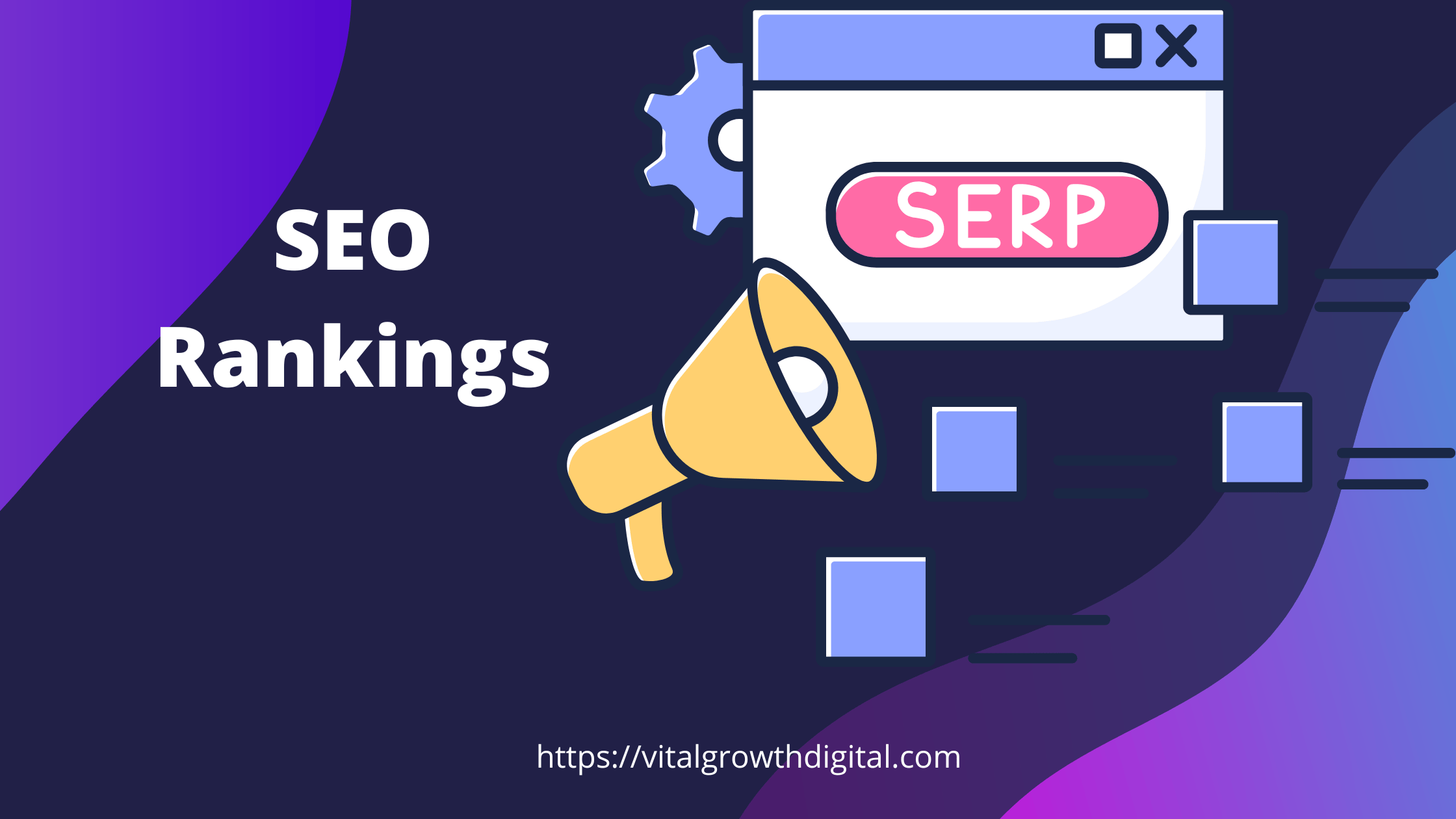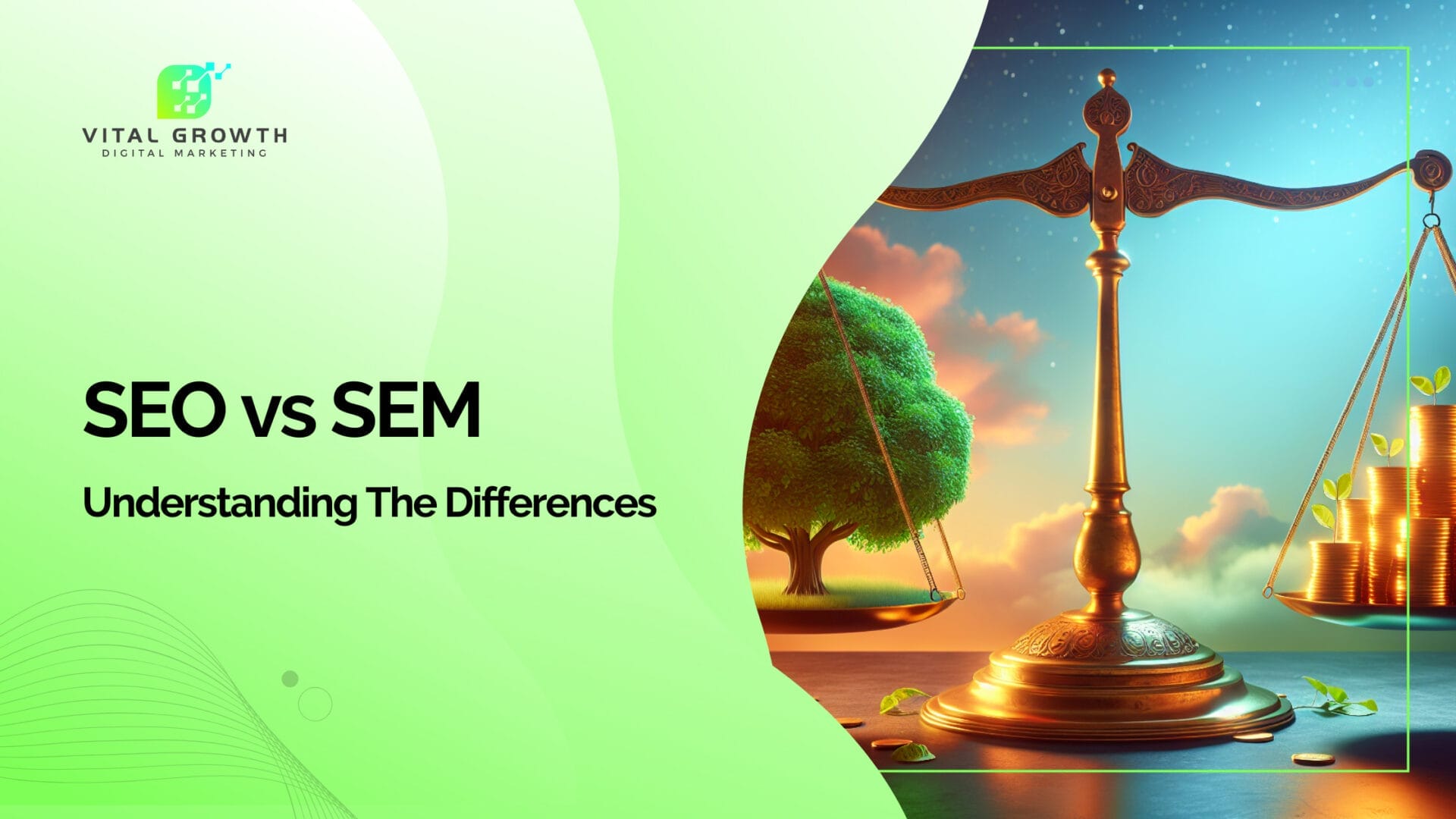Have you ever wondered how search engines decide which websites to show on the first page of search results? To improve your website’s visibility, it’s crucial to understand how search engine rankings work.
In this beginner’s guide, we’ll cover everything you need to know about rankings in SEO, including how search engines determine where your website shows up in search results and what you can do to improve your website’s rankings.
Table of Contents
Understanding Rankings in SEO
Welcome to the world of search engine rankings! If you’re new to the game, it’s natural to feel overwhelmed by the sheer number of websites clamoring for attention from search engines like Google, Bing, and Yahoo. But fear not! With some knowledge and smart tactics, you can increase your website’s visibility and climb up the ranks to claim a spot on the first page of search results.
First things first: what is ranking in SEO, and why do they matter?
Search engine rankings refer to the order in which websites appear on search engine results pages (SERPs). When a user types in a search query, the search engine’s algorithm scans the web for relevant results and presents them in order of perceived relevance and usefulness.
As you might imagine, appearing at the top of search results is a major boon for any website. The first page of search results receives the vast majority of clicks, while subsequent pages are often ignored. If your website isn’t ranking well, you miss out on potential traffic, leads, and sales.
But how do search engines decide which websites to show on the first page of search results?
That’s where the algorithms come in. Search engine algorithms are complex mathematical equations that consider hundreds of different factors when ranking websites. These factors include the relevance and quality of your website’s content, the number and quality of backlinks pointing to your website, search intent, and the overall user experience.
How Search Engines Determine Website Rankings
At its core, search engine optimization (SEO) is all about understanding how search engines determine website rankings and using that knowledge to improve your website’s visibility and attract more visitors.
The first and perhaps most important factor that search engines consider when determining website rankings is the relevance and quality of your website’s content. This means that if you want to rank well in search results, you must create high-quality, unique, and relevant content for your target search queries. This includes blog posts, articles, product descriptions, and landing pages.
Another important factor that search engines consider is the user experience of your website. This includes page load times, mobile-friendliness, and ease of navigation. If your website is slow to load, difficult to navigate, or not optimized for mobile devices, search engines may penalize you in their rankings.
Backlinks are another crucial factor that search engines consider when ranking websites. Backlinks are links from other websites to your website and signal to search engines that other people and websites view your content as authoritative and valuable. The more high-quality backlinks you have pointing to your website, the higher you’re likely to rank in search results.
When it comes to search engine rankings, many factors are considered when determining which websites to show at the top of search results. In addition to the factors we’ve already mentioned, there are a host of other things that can influence your website’s rankings, such as the age and authority of your domain name, the quality of your website’s code and markup, and the social signals associated with your website (such as likes, shares, and mentions on social media).
Ultimately, search engine rankings result from a complex and constantly evolving algorithm that considers hundreds of different factors. While it’s impossible to optimize for every single one of these factors, there are many best practices and strategies you can use to improve your website’s rankings and attract more visitors.
The Importance of Website Visibility and SEO Rankings
Having a website is essential for businesses and individuals alike. However, simply having a website isn’t enough – if you want to attract visitors and reach your goals, you need to ensure that your website is visible and ranks well in search engine results pages (SERPs).
Why are website visibility and SEO rankings so important? The answer is simple – the higher your website ranks in search results, the more likely people will click through to your website. Studies have shown that the vast majority of searchers never click beyond the first page of search results and that the first few results on the page receive the majority of clicks.
If your website isn’t ranking well in search results, you’re missing out on a huge amount of potential traffic and customers. By improving your website’s visibility and search engine rankings, you can attract more visitors, generate more leads, and ultimately grow your business or personal brand.
In addition to the direct benefits of increased traffic and leads, there are also indirect benefits of improving your website’s visibility and SEO ranking. For example, ranking well in search results can help to establish your website as a credible and authoritative source of information, which can, in turn, help to build trust with potential customers and clients.
How to Measure Your Website’s Ranking in Search Engines
If you want to improve your website’s search engine ranking, tracking your progress over time and measuring your success is important. But how do you measure your website’s ranking in search engines, and what metrics should you track?
The first step in measuring your website’s ranking in search engines is identifying the keywords and phrases you want to target. These are the search terms that you want your website to appear for in search results. Once you’ve identified your target keywords, you can use a variety of tools to track your website’s ranking for those keywords over time.
One popular tool for tracking search engine rankings is Google Search Console. This free tool from Google allows you to monitor your website’s performance in search results, including your average position, the number of impressions and clicks your website receives, and the click-through rate (CTR) of your listings.
In addition to Google Search Console, many other tools and software platforms can help you track your website’s ranking in search engines, including SEMrush, Ahrefs, Uber Suggest, SpyFu, and Moz. These tools offer a range of features and metrics, including keyword tracking, competitor analysis, and backlink monitoring.
When tracking your website’s ranking in search engines, it’s important to keep in mind that rankings can fluctuate due to a variety of factors, including search algorithm updates and changes in search volume. That’s why it’s important to track your rankings over time and look for trends and patterns rather than focusing on short-term fluctuations.
The Impact of Search Algorithm Updates on Website Rankings
If you’ve been in the world of SEO for any length of time, you know that search engine algorithms are constantly evolving and changing. What worked yesterday might not work today, and what works today might not work tomorrow. This constant flux can be frustrating for website owners and marketers, who must stay on top of the latest updates and adapt their strategies accordingly.
But why do search engine algorithms change, and what impact do these changes have on website rankings?
Search engine algorithms are complex mathematical equations that consider hundreds of different factors when ranking websites. These factors can include everything from the quality and relevance of your website’s content to the number and quality of backlinks pointing to your website to the overall user experience of your website.
As search engines like Google strive to provide the most relevant and useful search results to their users, they are constantly tweaking and refining their algorithms to reflect user intent and behavior better. These updates can range from minor tweaks and adjustments to major overhauls that completely change how search results are displayed and ranked.
So, what impact do these updates have on website rankings?
The answer is that it depends on the nature and scope of the update. In some cases, algorithm updates can significantly impact website rankings, causing some websites to see significant drops in visibility and traffic. In other cases, updates may have little to no impact on rankings or may even lead to improvements in visibility and traffic.
On-Page Optimization Techniques for Improved Rankings
On-page optimization is a critical component of any successful SEO strategy. Optimizing your website’s content, structure, and HTML code can improve your website’s relevance and authority in the eyes of search engines and increase your visibility and rankings in search results.
Conduct Keyword Research and Target Your Pages Accordingly
One of the most important on-page optimization techniques is to conduct keyword research and target your pages accordingly. This means identifying the keywords and phrases your target audience is searching for and incorporating them into your website’s content, page titles, meta descriptions, and other elements. You can increase your website’s relevance and visibility in search results by targeting the right keywords and optimizing your content accordingly.
Optimize Your Page Titles and Meta Descriptions
Your page titles and meta descriptions are the first things users see when they encounter your website in search results. That’s why it’s important to optimize these elements to make them compelling, informative, and relevant to the search queries you’re targeting. By crafting compelling page titles and meta descriptions that incorporate your target keywords and entice users to click through to your website, you can improve your click-through rates and attract more visitors.
Use Header Tags to Structure Your Content
Header tags (H1, H2, H3, etc.) are a powerful on-page optimization tool that can help you structure your content in a way that’s easy for users and search engines to understand. By using header tags to break up your content into logical sections and highlight key topics and subtopics, you can improve the readability and organization of your content and make it more likely to rank well in search results.
Optimize Your Images and Videos
Images and videos can be valuable assets for any website, but they can also slow down your page load times and hurt your rankings if they’re not optimized properly. By compressing your images and videos, using descriptive file names and alt tags, and incorporating relevant keywords into your captions and descriptions, you can improve the user experience of your website and boost your rankings in search results.
Off-Page Optimization Strategies for Better Website Rankings
While on-page optimization is essential for improving your website’s rankings, off-page optimization strategies can also attract more visitors and boost your visibility in search results. Off-page optimization refers to the activities you engage in outside of your website to improve your website’s reputation, authority, and online visibility.
One of the most important off-page optimization strategies is to build high-quality backlinks to your website. Backlinks are links from other websites to your website, and they signal to search engines that other people and websites view your content as authoritative and valuable. The more high-quality backlinks you have pointing to your website, the higher you’re likely to rank in search results.
Another important off-page optimization strategy is establishing a strong social media presence. Social media platforms like Facebook, Twitter, and LinkedIn can be valuable tools for building your brand, engaging with your audience, and driving traffic to your website. Creating and sharing high-quality content on social media can attract more followers and fans and ultimately improve your website’s visibility and rankings in search results.
In addition, you can also participate in online forums, comment on blog posts, and engage in other online communities to build your reputation and authority in your industry. You can improve your visibility and attract more visitors by providing valuable insights and information to these communities and linking to your website.
The Role of Social Media in Search Engine Rankings
Social media has become an integral part of our daily lives, and it has also had a significant impact on search engine rankings. While social media signals are not a direct ranking factor for most search engines, they can indirectly impact your website’s visibility and authority in search results.
One of the key ways that social media can impact search engine rankings is by driving traffic to your website. When people engage with your content on social media and click through to your website, search engines see this as a signal that your content is valuable and relevant to users. The more traffic you’re able to drive to your website from social media, the more likely you are to rank well in search results.
In addition, social media can also help to build your website’s authority and credibility online. When people share your content on social media and link back to your website, search engines see this as a signal that your content is authoritative and valuable. This can help to improve your website’s rankings and visibility in search results.
Another important role social media plays in search engine rankings is providing opportunities for engagement and relationship-building with your target audience. By engaging with your followers and fans on social media, you can build relationships and establish your brand as a credible and authoritative source of information in your industry. This can ultimately lead to more traffic, backlinks, and higher SEO rankings in search results.
The Importance of User Experience for Improved Rankings
Search engines are becoming increasingly sophisticated in their ability to measure and evaluate the user experience of a website. User experience (UX) refers to a user’s overall experience when interacting with your website, including site speed, mobile-friendliness, navigation, content quality, and more.
One of the most important reasons why user experience is critical for improved rankings is that it affects how users engage with your website. When users have a positive experience on your website, they are more likely to stay on your site longer, engage with your content, and ultimately convert into customers or clients. This positive engagement signals to search engines that your website is valuable and relevant to users, which can ultimately improve your rankings in search results.
Another reason user experience is important for improved rankings is that it affects how search engines evaluate and rank your website. Search engines use a variety of metrics to evaluate user experience, including site speed, bounce rate, time on site, and more. Optimizing these metrics and providing a positive user experience for your website visitors can improve your website’s rankings in search results.
In addition, a positive user experience can also lead to more backlinks and social shares for your website. When users have a positive experience on your website, they are more likely to share your content on social media and link back to your website from other sources. These backlinks and social shares can ultimately improve your website’s visibility and authority online, leading to improved rankings in search results.
Avoiding Common Mistakes That Can Hurt Your Website’s Rankings
Improving your website’s rankings in search results can be complex and ongoing. There are many factors to consider, from on-page optimization techniques to off-page optimization strategies, user experience, and more. Unfortunately, there are also many common mistakes that website owners and marketers make that can hurt their website’s rankings and visibility in search results. In this section, we’ll explore some of the most common mistakes to avoid and offer some tips and tricks for maintaining your website’s visibility and rankings in search results.
Neglecting Technical SEO
One of the most common mistakes that website owners and marketers make is neglecting technical SEO. Technical SEO refers to optimizing your website’s technical elements, such as site speed, mobile-friendliness, crawlability, and more. Neglecting these technical elements can hurt your website’s rankings and make it more difficult for search engines to crawl and index your content.
Ignoring User Experience
Another common mistake that website owners and marketers make is ignoring user experience. As we mentioned earlier, user experience is a critical component of a successful SEO strategy, and neglecting it can lead to high bounce rates, low engagement, and ultimately lower rankings in search results.
Focusing Too Much on Keyword Stuffing
While incorporating keywords and phrases into your content is an important on-page optimization technique, focusing too much on keyword stuffing can hurt your website’s rankings. Search engines are becoming increasingly sophisticated in detecting and penalizing keyword stuffing and instead favor high-quality, natural-sounding content that provides value to users.
Overlooking Content Quality
Content quality is another critical component of a successful SEO strategy. Providing high-quality, valuable content relevant to your target audience can help improve your website’s rankings and attract more visitors. On the other hand, low-quality, irrelevant, or duplicate content can hurt your website’s rankings and make it more difficult to attract and retain visitors.
Taking Action to Improve Your Website’s Rankings
Improving your website’s rankings in search engines can be a complex and ongoing process, but it’s also a critical component of your overall digital marketing strategy. By implementing the right strategies and techniques, and continually monitoring and refining your approach, you can achieve lasting success and maintain your website’s visibility and rankings in search results.
One of the most important things you can do to improve your website’s rankings is to create high-quality, valuable content optimized for users and search engines. You can improve your website’s relevance and authority online by providing useful information to your audience and incorporating relevant keywords and phrases into your content.
In addition, you can also optimize your website’s technical elements, such as site speed, mobile-friendliness, and more, to improve your rankings and make it easier for search engines to crawl and index your content. And by building high-quality backlinks, establishing a strong presence on social media, and engaging with your target audience, you can also improve your website’s authority and credibility online.
If you’re feeling overwhelmed by the complexity of search engine rankings and SEO, or don’t have the time or resources to handle it all on your own, consider partnering with a digital marketing agency like us at Vital Growth Digital Marketing. Our SEO services can help you implement a comprehensive SEO strategy tailored to your business needs and goals and achieve lasting success in search engine rankings.











